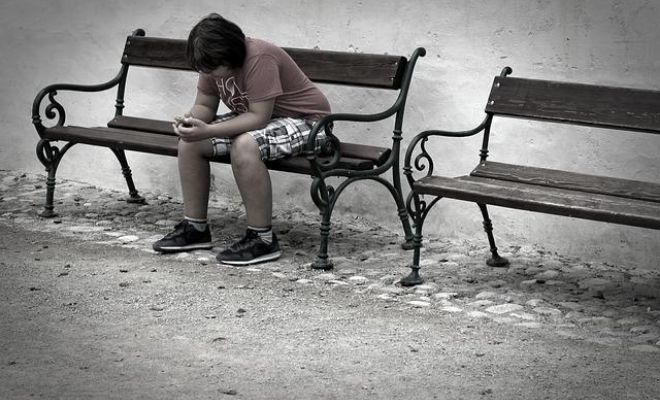It is commonly known that teenagers are capable of all kinds of strange behaviour. They may suffer from varying stages of depression and in severe cases even contemplate suicide. Teenagers usually face a host of pressures, from the changes of puberty to questions about their personal identity and where they fit in. But how can you differentiate between normal teenage growing pains and depression? How can you tell whether your child or any young adolescent you know, is exhibiting typical teenage angst – or showing signs that they are at risk for suicide?
Teen depression goes beyond moodiness and impacts every aspect of a teenager’s life. Its important for persons around the teenager to understand that their depressive thoughts, feelings, or behaviours are more serious than just bouts of moodiness or sadness. They can persist over a long period and become overwhelming. Fortunately, however, it is treatable and parents, family members and friends can help. Understanding, love, guidance, and support can go a long way toward helping a teen overcome depression. And though the healing process may seem difficult, they can slowly get their life back on track.
Teen Depression is a serious mental health condition. Approximately 20 percent of teens experience depression before they reach adulthood. Depression increases a teen’s risk of attempting suicide by 12 times. Suicide is the biggest killer of young Australians. It accounts for the deaths of more young people than car accidents.
Some of the signs of depression to look out for in an adolescent:
Social Behaviour –
Having a smaller social circle. Becomes socially withdrawn. More likely to struggle with relationships. Has low self-esteem.
Emotional Behaviour –
Feeling sad or ‘down in the dumps’ through most of the day. Tearfulness or frequent crying. Suffers lack of energy. Goes through a significant weight loss or gain. Has persistent headaches, stomach aches or other aches and pains.
Educational / extracurricular activities –
Shows a lack of interest in hobbies or extracurricular activities they once enjoyed. More likely to have trouble at school and in jobs. Taking fewer/no advantages of career and educational opportunities. Poor grades at school. Has an internet addiction.
Health –
Displays rebellious and unhealthy/ violent behaviours or attitudes. Having trouble falling asleep or sleeping too much. Regularly being cranky or irritable.
Vices –
Starts abusing drugs and alcohol. Running away from home. Engaging in dangerous or high-risk behaviours, such as reckless driving, binge drinking, and unsafe sex.
Some tips on how to help a depressed adolescent
Set aside time every day for your teen. This should be a focussed and exclusive one on one time without distractions. This simple act of connecting face to face can play a big role in reducing their depression. Talk to your teen. Talking about your teen’s feelings or depression will help in their recovery. Don’t hesitate or think that it will make the situation worse. Most teens just want your support.
Encourage your teen to make efforts to remain connected socially. Encourage them to invite friends over or to go out with friends. Participating in activities that involve other families gives your child an opportunity to meet and connect with other kids too. Get your teen involved in activities – sports, after-school clubs, or an art, dance, or music class. Explore your teen’s interests and talents and build them up. Limit screen time –internet/television. Less screen time results in more time for physical activity or face-time with friends and family. Help your teen find a cause they’re interested in, thus giving them a sense of purpose. Doing things for others is a powerful antidepressant and self-esteem booster.
Make exercise a part of your teen daily routine. Exercise is absolutely essential to mental health. Normally, teens should be getting at least an hour of physical activity a day. You may have to think outside the box initially: walking the dog, dancing, shooting hoops, going for a hike, riding bikes, skateboarding.
Make sure your teen is getting proper nutrition and balanced meals. Things like healthy fats, quality protein, and fresh produce assist in good brain health and moods. Avoid eating a lot of sugary, starchy foods as quick “pick me up”. Ensure your teen isn’t staying up until all hours. Encourage your teen to get upto 9-10 hours of sleep per night.
Know when to seek professional help
Don’t hesitate to get professional help when the depression is severe. Contact mental health professionals with advanced training and a strong background in treating teens.
Always involve your child when choosing a specialist or pursuing treatment options. Don’t ignore their preferences or make unilateral decisions.
Talk therapy is often the initial treatment for mild to moderate cases of depression, medication may be also involved.
But what do you do when you are faced with an unfortunate tragedy like a suicide of a loved one at home? You will need the help of a compassionate yet professional cleaning service. We at One Prime Remedial Solutions provide a complete suicide cleanup and are fully equipped to deal with such a delicate situation. We understand the sensitivity of the work & attend to each incident in the most professional and discrete manner possible to protect the confidentiality of the victim and family. Call us today to know more.
